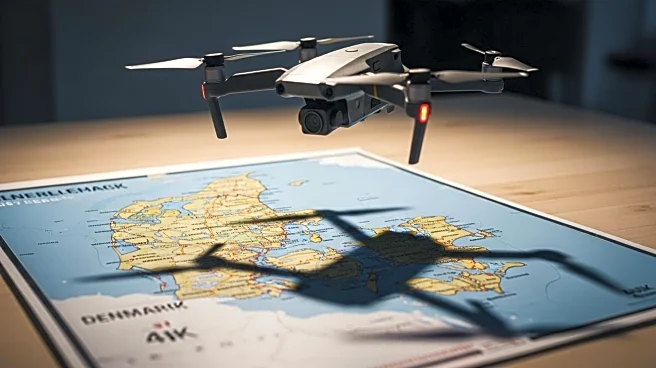What's Happening?
Danish Prime Minister Mette Frederiksen announced that Europe is facing a 'hybrid war' following a series of drone incursions that disrupted Danish airspace. The incidents led to the temporary closure of major airports, including Copenhagen and Oslo, causing flight cancellations and affecting thousands of passengers. Frederiksen attributed the airspace breaches to a 'professional actor,' hinting at Russian involvement. The situation has prompted urgent talks among NATO members, as Estonia and Poland have also reported airspace violations by Russian drones.
Why It's Important?
The declaration of a hybrid war by Denmark highlights the growing security challenges posed by drone technology and its use in geopolitical conflicts. The incidents underscore the vulnerability of critical infrastructure to drone incursions, raising concerns about national security and the need for enhanced airspace protection measures. The situation could lead to increased military readiness and collaboration among European countries to counter potential threats. It also emphasizes the importance of international cooperation in addressing the complexities of modern warfare.
What's Next?
European countries may need to invest in advanced technologies and strategies to detect and neutralize drone threats. The situation could lead to increased military spending and the development of new defense systems to protect airspace and critical infrastructure. NATO members are likely to continue discussions on collective security measures and intelligence sharing to address the evolving threat landscape. The incidents may also prompt diplomatic efforts to address tensions with Russia and prevent further escalations.
Beyond the Headlines
The use of drones in hybrid warfare raises ethical and legal questions about the conduct of military operations and the protection of civilian airspace. The incidents highlight the need for international regulations and agreements to govern the use of drones and prevent their misuse in conflicts. The situation may also impact public perception of security and influence policy decisions related to defense and technology.











